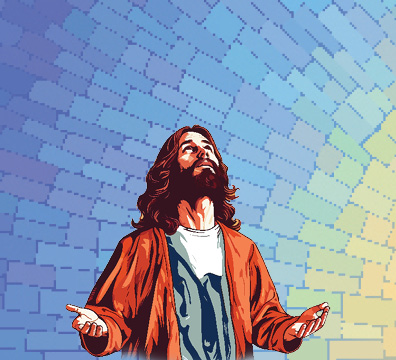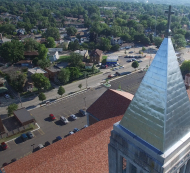'All are welcome in this place'
On September 18, we gathered as a family of God with our brothers and sisters living with Down syndrome, deafness, amputations and other challenges. The Mass was beautiful. After being nourished by word and sacrament, I enjoyed a post-Mass gathering with attendees, posing for photographs and engaging in conversation. During these delightful interactions, just about everyone expressed gratitude for the Mass and the fellowship. However, I was also struck by a common theme of their not feeling welcomed – not only in many parts of our society, but also in some of our churches. Participants shared experiences of not being acknowledged or recognized, and even feelings of invisibility.
I was surprised, and probably more accurately, shocked by their comments. Honestly, my heart broke and sank as I reflected on some of their experiences of rejection and isolation. As I drove away from our time together, I wondered, “How is it possible that people with disabilities have experienced exclusion in our Catholic churches, where for decades we have sung an entrance hymn with the lyrics, 'All are welcome in this place.'”
Hopefully, it goes without saying that the Church should be a community in which all people experience an unconditional love that reflects God’s love. I am sure that most of us never intentionally intend to be noninclusive. Yet during this month when we celebrate the International Day of Persons with Disabilities, let me take this opportunity to challenge all of us to reflect on some of our unintentional attitudes and actions, and look for ways to see, welcome and include all of our sisters and brothers with disabilities or special needs. For we should always strive to be a church that lives the words of St. Paul in his Letter to the Galatians 3:26-28: “So in Christ Jesus you are all children of God through faith, for all of you who were baptized into Christ have clothed yourselves with Christ. There is neither Jew nor Gentile, neither slave nor free, nor is there male and female, for you are all one in Christ Jesus.”
As baptized Christians, we are all constantly called to a personal conversion that reflects the love of Christ. But it does not end with our own individual attitudes and actions. As an institution, we as the Church also need to embrace persons with disabilities or special needs concretely with our ministries, policies and programs. I am proud to highlight that in the Diocese of Joliet, Renata Cichowicz is providing the lead for pastoral outreach for such ministries through the Department of Catechesis and Evangelization. The diocese also acts as an affiliate of the National Catholic Partnership on Disability. Additionally, St. Raphael Catholic Church in Naperville and several other parishes intentionally serve these communities with programs like REACH: Religious Education Apostolate for Christian Handicapped. REACH provides simplified religious education lessons at a slower pace using a smaller student-to-catechist ratio. This program also prepares students for the sacraments of reconciliation, the Eucharist and confirmation.
I look forward to whenever I have the opportunity to celebrate Mass and gather with our beautiful community of individuals living with deafness, disabilities or special needs. Until then, I enthusiastically echo our Holy Father’s words from his 2021 message for the International Day of Persons with Disabilities: “I would like to speak to all of you who live with any condition of disability, to tell you the Church loves you and needs each of you for the fulfillment of her mission.”
Prayer to Foster Belonging
Creator God, we are your people. We look to the future with optimism and with faith in You, as we pursue our call to provide justice and fullness of life for all people with disabilities.
We pray that every man, woman and child may develop their potential and meet You in themselves and in one another.
May we enjoy a totally welcoming community, with You as our center, joined hand in hand with our sisters and brothers. We ask this in Jesus’ name. Amen.
From the National Catholic Partnership on Disability and based on the Pastoral Statement of U.S. Catholic Bishops on People with Disabilities.




